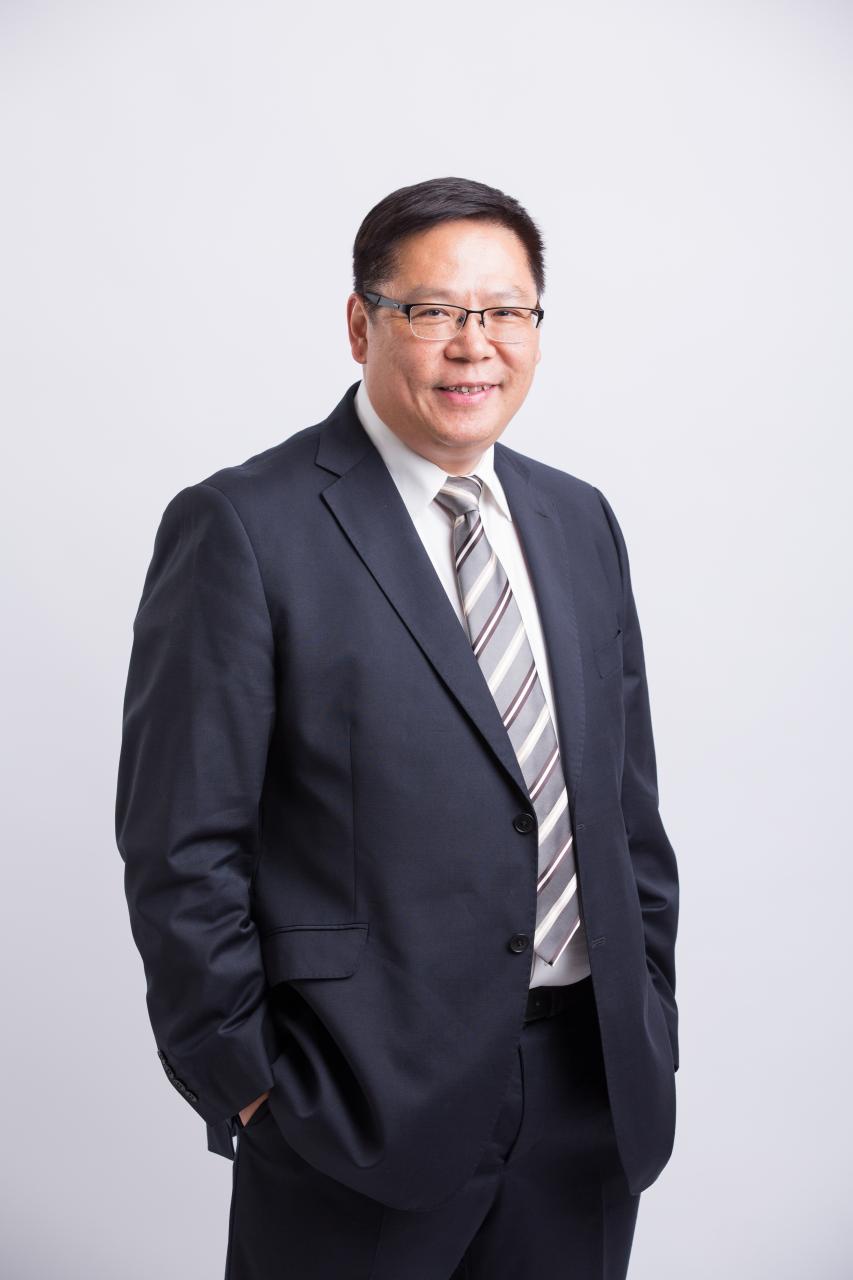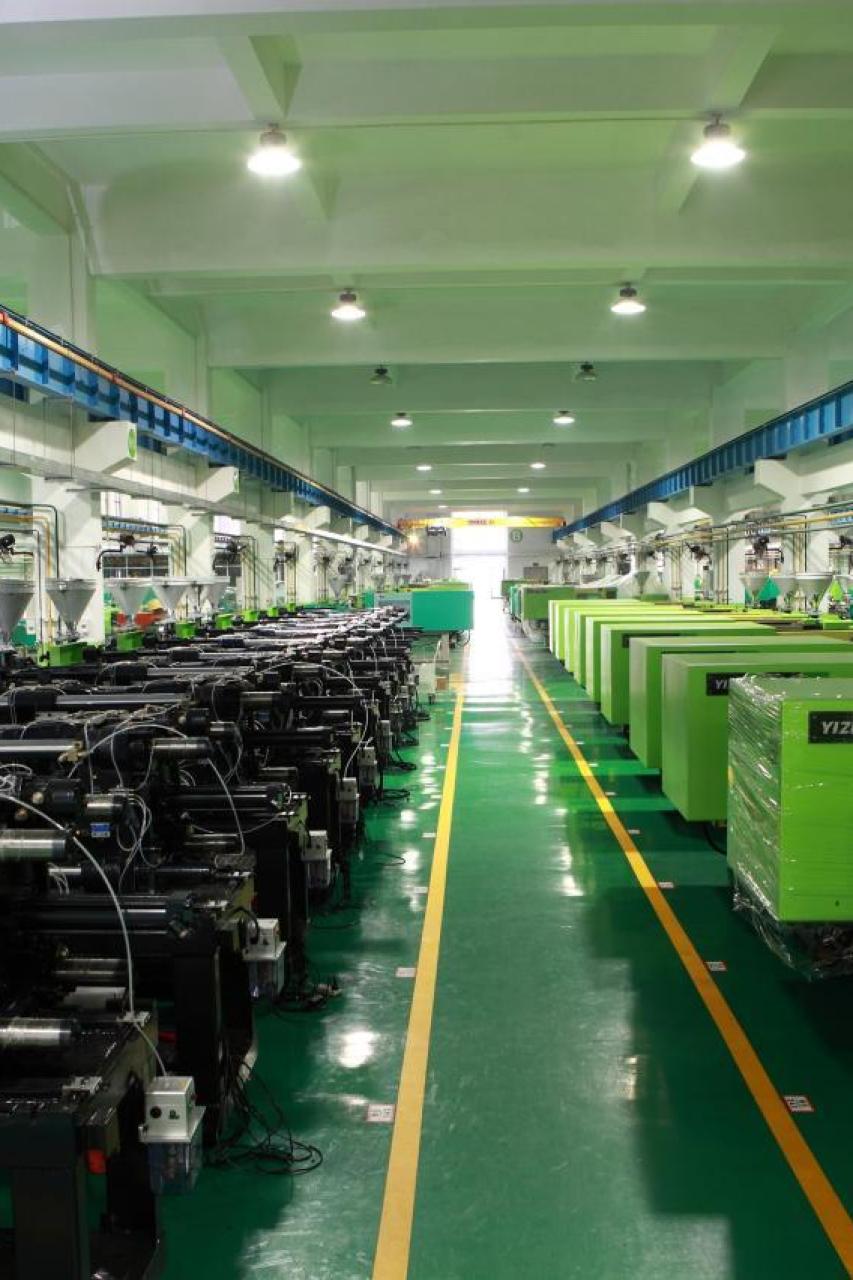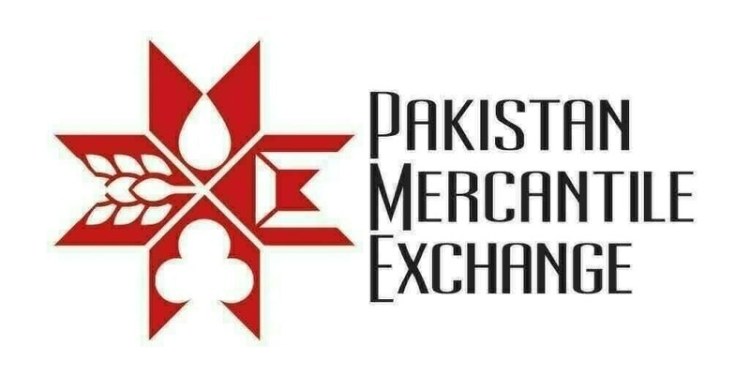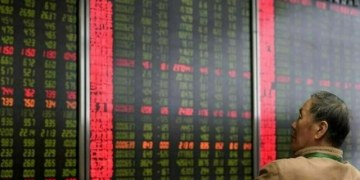November 27, 2015
Email Print

Yizumi Precision Machinery Co. Ltd. Richard Yan has seen the growth of China’s home-grown plastics industry as the country opened its doors to international business.
Founded in 2002, Yizumi Precision Machinery Co. Ltd.’s name means “spring” in Japanese, and the company’s trademark bright green logo seems remarkably prescient now that energy efficiency has emerged as an industry driver.
After acquiring Marion, Ohio-based HPM’s intellectual properties in 2011, Yizumi has brought the stalwart brand back to the U.S. market with two new series of injection molding machines.
In addition to HPM- and Yizumi-branded plastics molding machines, the company also makes die-casting machines and rubber injection molding equipment.
In January, the Shunde, China-based company had an IPO on the Shenzhen stock exchange.
With an eye on the emerging integrated solutions market, Yizumi has also started making molds and started a joint venture to make automation equipment. Last month, the company announced its new Wusha factory is fully operational.
Plastics News recently spoke with Yizumi CEO Richard Yan at the company’s offices at the Wusha factory. The wood-and-polished-stone interior and a tranquil bamboo-fringed pool just outside the sunlit lobby highlight the eco-themed facility. The interview was sporadically punctuated by the shouts of Yizumi workers from the adjoining factory taking a break for a friendly game of tug-of-war.
Yan went to work at ABN bank Nederland after graduating from the University of Hong Kong in 1984 with degrees in economics and finance. He might have stayed in banking, had not an old friend who had become the human relations manager at injection molding machine maker Chen Hsong Group called one day in 1986 with an offer.
“At that moment, China had just adopted the Open Door policy, so China trade was very hot. Chen Hsong had a new position, China business development manager,” recalled the affable Yan in fluent English. “I worked for Chen Hsong for 15 years, becoming the general manager of its subsidiary in China.”
But Yan’s aspirations extended beyond both injection molding machinery and China.
“In 2002, Cosmos [Machinery Ltd.] invited me to work as a director, to take care of the machinery sectors. This means not only injection molding machinery, but all their machinery, and not only the China market, but their global market. It was a step up.”
In 2008, he made his next big step, when Yizumi Chairman Chen Jingcai, a colleague from their Chen Hsong days, offered Yizumi’s CEO post. Yan smiles when asked about his long-term goal when he moved into the Yizumi executive suite.
“My dream was that years in the future, people would mention Yizumi along with Japan’s Toshiba Machinery, Sumitomo Heavy Machinery, and not only in injection molding machinery, but whatever machinery we make. As one of the leading, one of the most respected companies in the world,” Yan said.
At Yizumi, Yan joined more than 30 other shareholders in the then-privately held company.
“Yizumi is different from Chen Hsong and Cosmos. Although those are both listed companies, most of their shareholders are family. We don’t have that concept at Yizumi. Here, it’s a totally different environment. 80 to 90 percent of the partners are active in the company,” Yan said.
“There isn’t an attitude of a big guy saying ‘You have to do things this way’ here. It’s a teamwork approach.”
When asked what’s the most interesting job he’s ever had, he laughed: “CEO of Yizumi.”
“In the past, Yizumi was run by a group of engineers,” Yan said. “They focused on technology, they focused on product[s], but they didn’t focus on management, they didn’t focus on sales and marketing. The normal engineer’s attitude is, ‘This is a good product. We can sell it since it’s good!’
“We did a lot of promotion, marketing, establishment of the sales channel[s] and the sales network. We paid attention to all the promotion activities.
“I’m not an engineer,” he added, smiling. “The work is very interesting but I have to learn a lot.”
In India, Yizumi is looking for land suitable for a machining and assembly factory near New Delhi. The move represents a bow to reality, where the Indian government announced last month that it would continue anti-dumping duties against Chinese-made injection molding machines, initially imposed in 2009, for five more years.
Yan has sharp words for the policy.
“I don’t know what the Indian government is thinking. They can protect their industry [by imposing the duties], but on the other hand, their plastic processing industry will suffer.”
Yan pointed out that with the economics of toy manufacturing in China becoming costly, executives casting about for new countries in which to set up shop will bypass India.
“If you have to pay such a high import tax when you bring your machine from China to India, you’ll say ‘No, I’ll go to Bangladesh, I’ll go to Vietnam, I’ll go to Indonesia, another low-cost country.’

Yizumi Precision Machinery Co. Ltd. Yizumi Precision Machinery Co. Ltd.
“So whether this [policy] really benefits the economy as a whole, this is my question.”
China’s plastics industry has undergone tremendous changes since Yan walked through the doors of Chen Hsong on his first day of work. “Thirty years ago the China market was dominated by machinery imported from Japan and Europe. Nowadays it’s a different story. Chinese machinery plays a more and more important role not only in China but in the world. Now we can compete with Japan and Europe at a similar level.”
He held his hands far apart to indicate the gap between Chinese and foreign makers in the 1980s. “We’re here, they’re there.” Rapidly he brought his hands together until they are only a few inches apart. “Now we’re much closer.”
When asked what advice he would give a new recruit at the company, he paused to ponder.
“I tell [our new recruits], you have to love your business and also, you have to make a choice. You can [focus on becoming] a professional — an accountant, an IT engineer, or a specialist in marketing. These are the so-called professionals.
“The other choice is to become an expert in our industry, whether it’s in the machine industry, the plastic industry, or the plastics machinery industry.
“If that’s your choice, you should go deep inside your industry, create your social network, so the customers know you, the suppliers know you, the engineers know you, the competitors know you. If you go deep inside your industry, and do a good job, and then you will get your standing, get your reputation, and then you will be successful.”
He pauses. “Try to love your business. If you love it, that means you’ll enjoy it and you’ll find the work meaningful. And you’ll find success,” Yan adds. “And then you can discover the beauty of your industry.”
Read about PN’s CEO project and find links to other profiles.



























